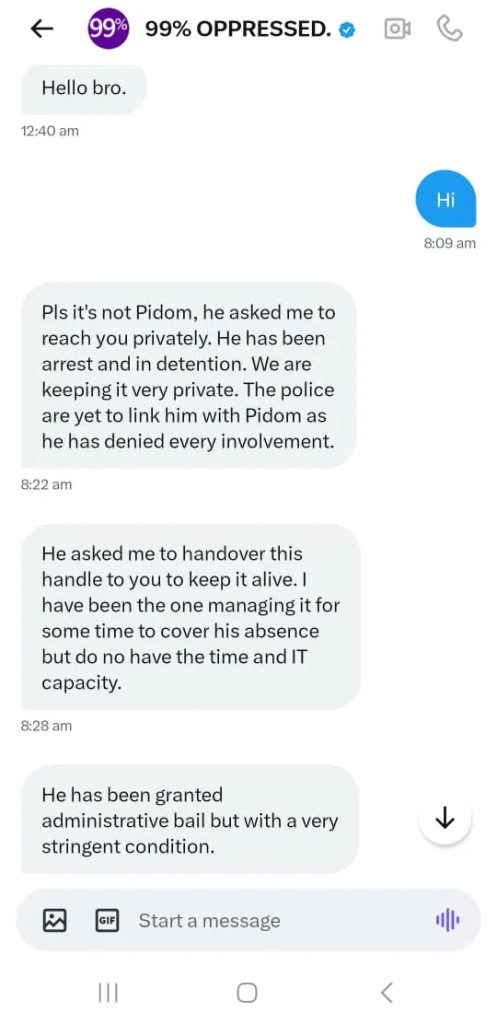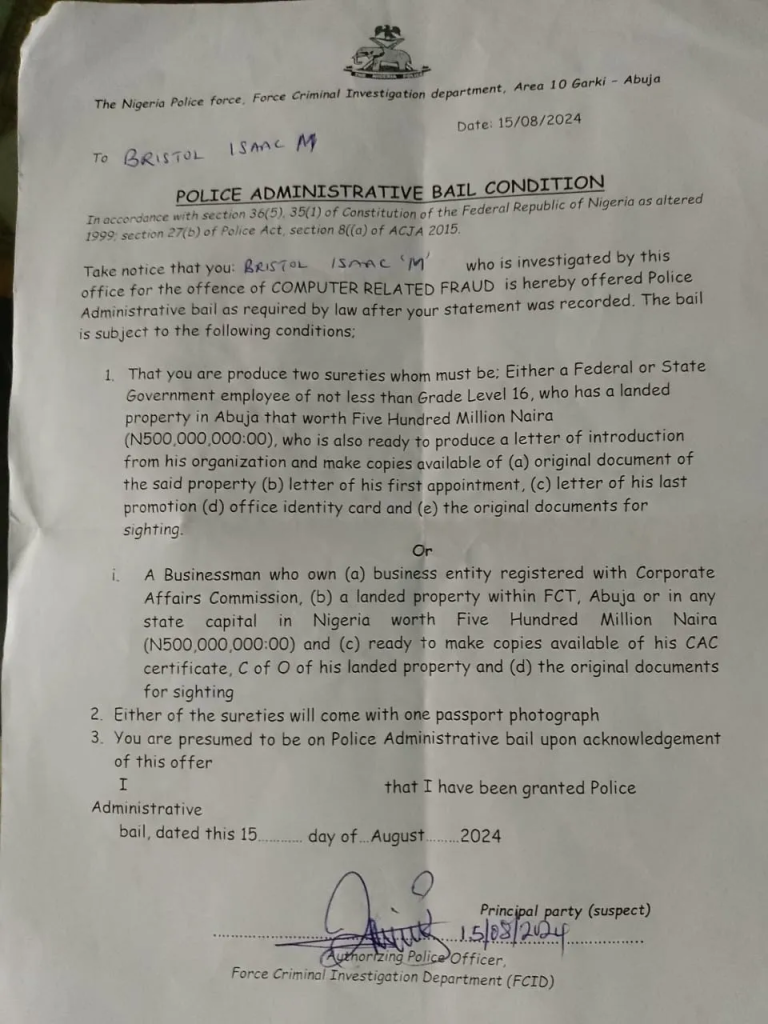Nigerian journalist David Hundeyin has raised an alarm over the disappearance of PIDOM NIGERIA, an anonymous whistleblower known for exposing high-profile governmental misconduct. Hundeyin shared these concerns in a post on X titled, “SOS Alert: PIDOM NIGERIA Is Missing (And I Think We May Know Who Has Him).”
In his post, Hundeyin explained how his routine check of direct messages led to an unsettling discovery. He received a message from PIDOM NIGERIA’s account, supposedly sent by a close associate claiming that PIDOM had been arrested on August 5 in Port Harcourt and subsequently transferred to the Force Criminal Investigation Department (FCID) in Abuja, where he remains under the control of the National Cybercrime Centre (NCCC).

Hundeyin expressed skepticism about the authenticity of the message and the person behind it, noting that several inconsistencies raised red flags. These included incorrect login details provided to access PIDOM’s social media accounts, attempts to obtain Hundeyin’s personal information, and dubious claims about PIDOM’s detention. Despite these suspicions, Hundeyin eventually gained access to PIDOM’s Twitter account, where he immediately took measures to secure it.
However, this action triggered a series of suspicious events, including hacking attempts on Hundeyin’s WhatsApp account and login attempts on PIDOM’s Twitter account using the newly set password. These incidents led Hundeyin to suspect the involvement of state actors, given the sophisticated nature of the hacking attempts.

Hundeyin recounted how PIDOM, over the years, had built a reputation for leaking sensitive documents that exposed corruption and misconduct at the highest levels of the Nigerian government. These leaks had led to significant embarrassment for the authorities and prompted warnings from the Presidency. Despite maintaining a professional relationship with PIDOM, Hundeyin stated that they had never met in person, and PIDOM had always taken extreme precautions to protect his identity.

The journalist expressed deep concern for PIDOM’s safety, fearing that the whistleblower might be in mortal danger or even dead. He highlighted the Nigerian state’s history of using sophisticated surveillance technology to target whistleblowers and journalists rather than addressing the country’s pressing security challenges.
In conclusion, Hundeyin called for public awareness of PIDOM’s disappearance, emphasising the importance of exposing what he believes could be a deliberate attempt by the Nigerian state to silence a prominent critic. He urged Nigerians to recognise the gravity of the situation and to take action, not just for the present generation, but for the future.


